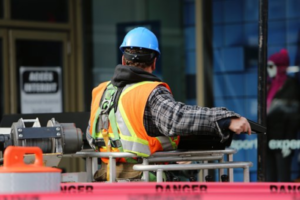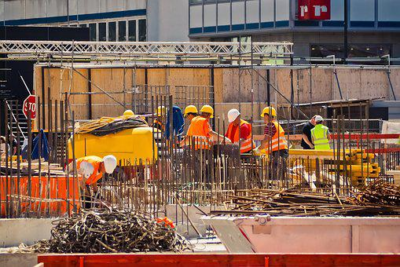There are few things in this world as exciting as building something new. Whether a towering skyscraper or a simple birdhouse, taking raw materials and shaping them into something useful is a wonder. But before you can begin construction, there are some important things you need to do. Here are six of the most important ones.
1. Purchase Adequate Insurance Coverage for the Project
Construction can be risky, and accidents can happen even with the best precautions in place. That’s why it’s important to have adequate insurance coverage for your project. This should include liability insurance for any injuries or damage caused by the construction work and property insurance for the materials and equipment used.
Your contractors may have insurance coverage, but it’s always a good idea to have your policy in case there isn’t enough. Folks from Axcess Surety can help you find the best coverage for your specific project. A small investment in insurance now can save you from a lot of trouble down the road.
2. Get the Necessary Permits and Permissions
To build anything, you need to get the necessary permits and permissions. This is especially true when it comes to construction, as there are a host of laws and regulations that must be followed. Failing to do so can result in hefty fines or even jail time.
The process can vary from place to place, but usually, it involves submitting an application form and paying a fee. You may also be required to provide detailed plans of your proposed construction project. Sometimes, you may need to hold a public hearing before granting the permit.
It’s important to start this process early, as it can sometimes take weeks or even months for the various agencies involved to review your application and make a decision. So don’t wait until the last minute; start gathering the necessary paperwork today.
3. Create a Plan and Budget for the Project
The first step in creating a plan is to develop a detailed project outline. This should include everything from the materials you’ll need to the labor required. Once you have this outline, you can start estimating the cost of each component. Be sure to factor in permits, delivery fees, and taxes.
Once you have a final estimate for the project’s cost, it’s time to create your budget. This involves dividing the total cost among different phases of the project and setting aside money for contingencies. It’s always better to overestimate than underestimate, so adding an extra 20-30% contingency fund to your budget is best.
4. Hire Qualified Contractors and Workers
When it comes to construction, nothing is more important than the quality of the workmanship. Poorly done construction can lead to all sorts of problems down the road, from leaks and structural damage to safety hazards. That’s why hiring qualified contractors and workers for your project is essential.

The best way to find qualified contractors is by word of mouth. Ask your friends and family if they know of any good builders or contractors in your area. If they don’t know anyone, they may be able to recommend someone they’ve heard about. You can also check with local trade associations or online directories.
Once you have a list of potential contractors, it’s time for the next step: checking their qualifications. All reputable contractors should be licensed and insured. They should also have experience in the type of work you need. It’s a good idea to ask for references from past clients and visit some of their recent projects.
5. Carry Out Any Necessary Surveys or Studies
Before starting any major construction project, it’s essential to carry out any necessary surveys or studies. This can include soil testing, environmental impact assessments, and archaeological surveys. These surveys and studies can help identify potential issues before they become problems during construction.
The specific surveys and studies you need will depend on the location and nature of your project. Your local government may require certain ones, or your contractors may recommend them for practical reasons. In any case, factor the cost and time for these surveys into your overall plan and budget.
6. Double Check All Building Codes and Regulations
Before beginning construction, ensuring that your project complies with all building codes and regulations is crucial. This includes obtaining the necessary permits and inspections during every phase of the construction process.
Your contractors should be familiar with these codes and regulations, but it’s always a good idea to do your own research. Contact your local government or building department for more information. The last thing you want is for your project to be delayed or halted because of code violations.
Taking the time to cover these six crucial steps before starting construction can save you time, money, and headaches in the long run. It may require some extra effort upfront, but it will pay off in the end with a successful and safe construction project.












